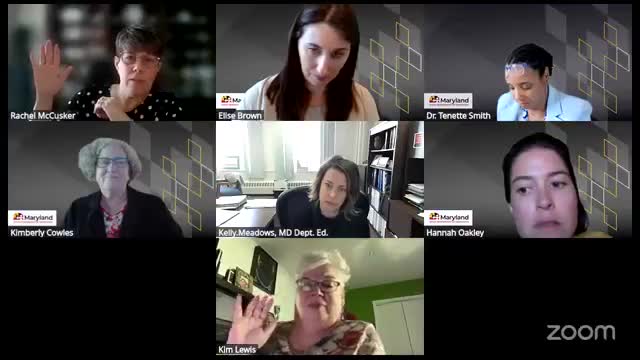Article not found
This article is no longer available. But don't worry—we've gathered other articles that discuss the same topic.

Committee recommends adoption of updated incorporation‑by‑reference list for educator preparation program standards

Committee approves republishing induction regulations after public‑comment revisions

Committee approves sending proposed library media COMAR changes, aligned with Freedom to Read Act, to register

Committee unanimously recommends Maryland social studies framework revisions for full‑board adoption

Maryland outlines major math standards revisions and timeline for phased implementation

